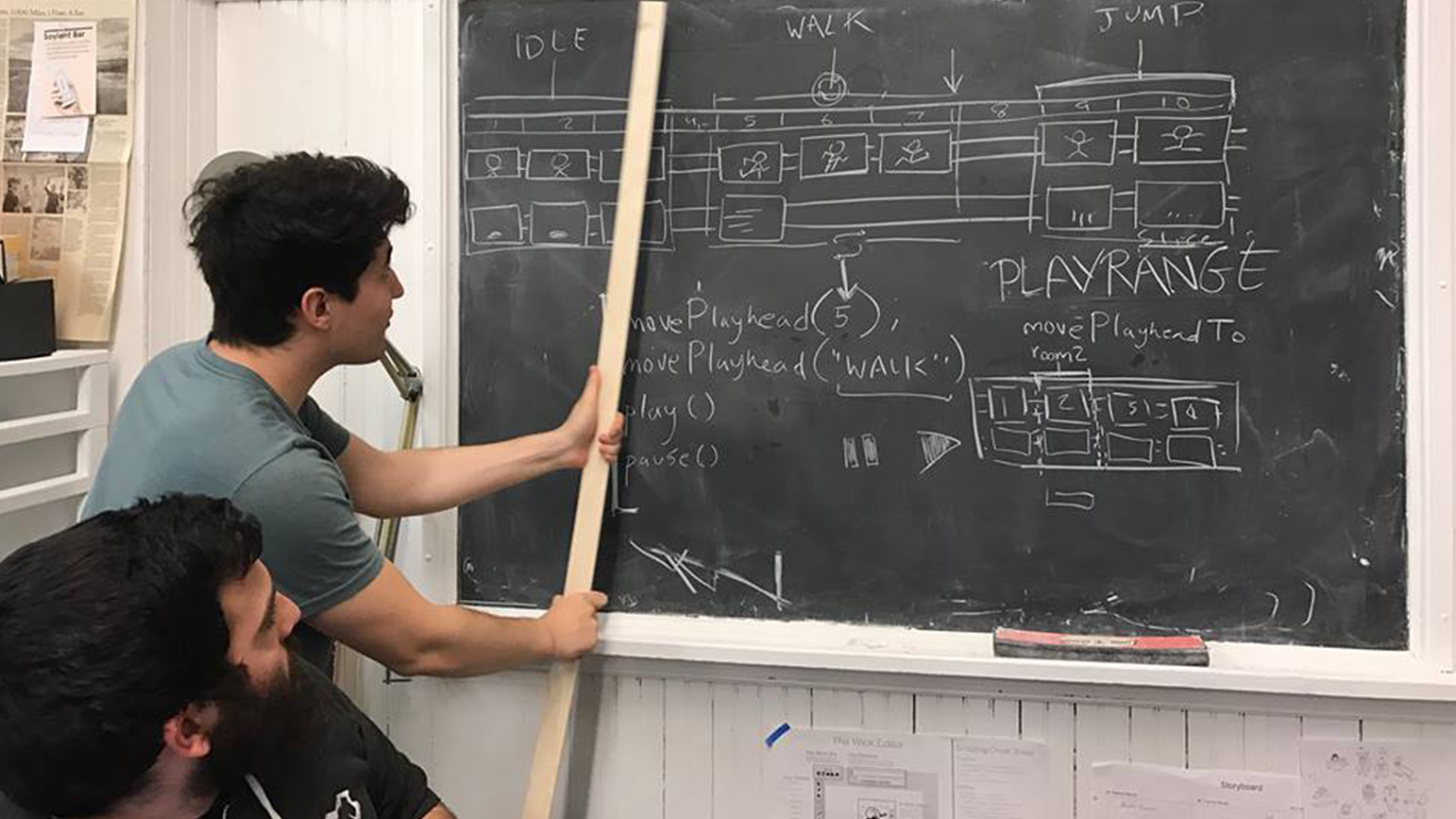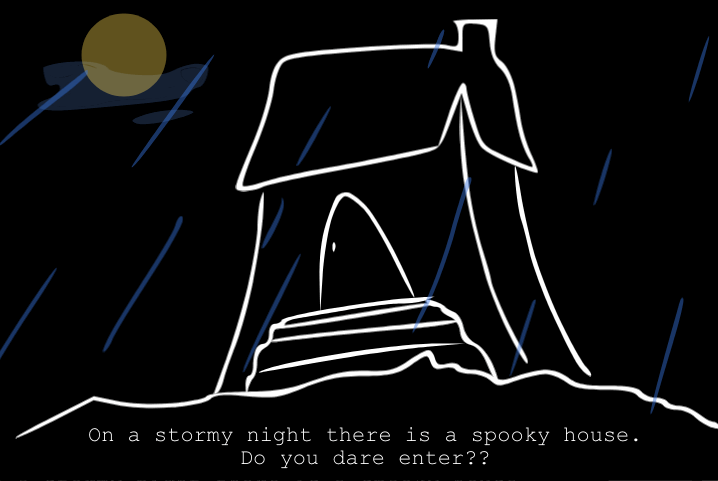
Wick Editor, a free and open-source tool for creating games, animation and interactive media, is the winner of a $79,120 grant from the Mozilla Open Source Support program.
Started by recent School of Art alumni Luca Damasco and Zachary Rispoli while they were undergraduate students, Wick Editor has grown from a class project to an online tool used by aspiring artists and creatives across the United States. Damasco earned his bachelor’s degree from the computer science and arts program in 2017 and a master’s degree in human-computer interaction in 2018. Rispoli graduated with a bachelor’s degree in fine arts in 2018.
The creation of Wick Editor was inspired by the demise of Adobe Flash, once the predominant platform for making online multimedia content and the primary tool behind online creative communities in the days before YouTube, Facebook and other social media sites.
“My first motivation was my little sister,” Rispoli said. “She was about 11, and she wanted to make a game.” He said because Flash is currently being phased out, he needed a new program that was easy to use and free.
Damasco and Rispoli said they designed Wick Editor with beginners in mind and made sure the design of the editing tools appeals to beginners. Wick Editor simplifies the process of creating animations and games by creating a less intimidating and highly rewarding experience for young creators.

“Animation and game design are artistic mediums that everyone should at least be able to try,” Rispoli said. “You never know what kids may end up doing because they have this free program. It could start them off as artists, as creators.”
Animations created in Wick Editor have popped up on Vimeo and YouTube, often times from creators who have never posted content before. Games created using Wick can be found on popular online communities such as itch.io and Newgrounds.com.
Wick Editor began as an assignment in School of Art Professor Golan Levin’s Interactive Art and Computational Design class in response to the prompt to make a drawing tool. The Frank-Ratchye Fund for Art at the Frontier, administered through the Frank-Ratchye STUDIO for Creative Inquiry, provided the initial seed funding for the project, supporting the design and development of the current interface and events and educational workshops for using the tool. The STUDIO continues to support the project with technical and administrative mentorship. The project also has received assistance from CMU Project Olympus, The Henry Armero Memorial Award for Inclusive Creativity and the BXA Capstone Supplemental Grant.
Damasco and Rispoli have introduced Wick Editor to several schools and afterschool programs in the Pittsburgh region, working with students as young as first grade.
Jayla Patton, who teaches at Assemble and the Pittsburgh Center for the Arts, said she has found Wick Editor to be an effective tool for students who do not have any animation experience, as well as those who have worked with animation before. The accessibility of the tool is critical for students, she says, both in the classroom and at home.
“I get questions from my students asking if there are free versions of animation software they can use at home,” she said “I always direct them to Wick.”

She added that the Wick Editor is a great option “if educators are struggling to find programs that function like Flash because price is a barrier.”
This educational use has been one of the most gratifying experiences of creating Wick Editor, Damasco said, who is also an adjunct professor in the School of Art this term.
“It’s not just art teachers or tech teachers,” he said., “We have students in math classes creating interactive games about making change and students using the Wick Editor in science to learn about magnetism, for example. There’s a huge opportunity for it to be used as an educational tool, not just a creative tool.”
The Mozilla grant will allow Damasco and Rispoli to work on the Wick Editor full time. They have already built a new engine for the tool and in the coming months will be releasing dozens of new tutorials, examples, and reference items. The funds will enable them to hire freelance developers and designers to improve the product.
Though it may grow and evolve, its critical to Damasco and Rispoli that Wick Editor remain free, open-source and community-driven. Damasco said that suggested changes to code through GitHub, where the source code for the Wick Editor is posted, along with “comments, notes and suggestions, have been integral in moving the tool forward.
“The community has been incredibly supportive,” he said.
Use Wick Editor online at www.wickeditor.com.




